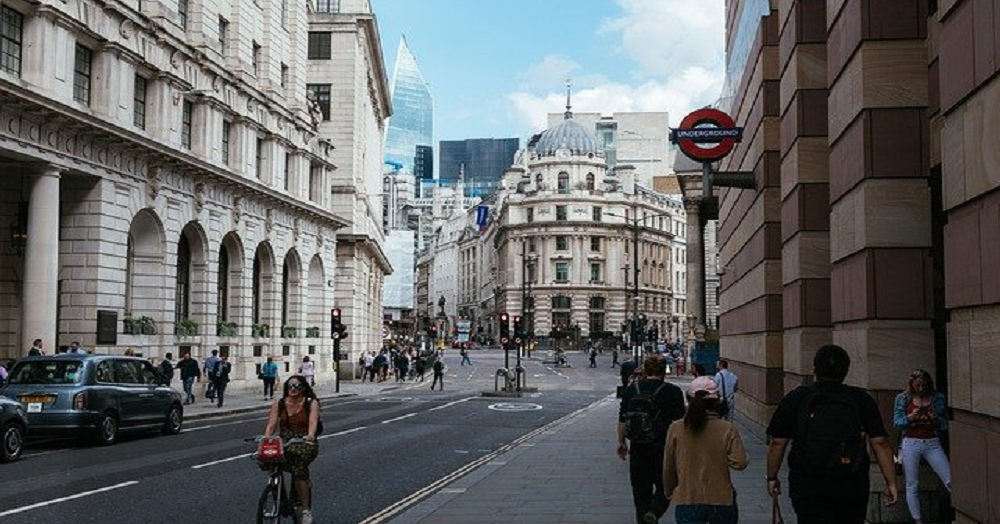The Monetary Policy Committee of the Bank of England meets on Thursday with the market expecting them to announce 0.5% raise in the Base Rate.
The Monetary Policy Committee of the Bank of England meets on Thursday with the market expecting them to announce 0.5% raise in the Base Rate.
But what will this mean for us mere mortals? And should homeowners fix rates now?
Experts from Hargreaves Lansdown gave us their take.
Senior Investment and markets analyst, Susannah Streeter, told us: “Bank of England policymakers will attempt to become Masterchefs on Thursday: trying to stop inflation burning spending power whilst avoiding the economy sinking like an undercooked souffle.”
“A 0.5% hike is expected taking the official bank rate to 4%, with another rate rise to come. Governor Andrew Bailey seems more confident that the Bank’s recipe is working, with inflation finally edging down from painful peaks and is hopeful a recession will be shallower.”
“But that won’t stop policymakers from making fresh moves to lower demand, because they worry that inflation is still running far too hot. Prices across services remain steamy, still climbing in December, even though the headline rate dropped back to 10.5% from the 11.1% October peak.
“Grocery prices continued their upwards march in December, with food and non-alcoholic drinks up 16.8% in a year. There are warnings from industry bosses that prices will take considerable time to come down.”
Industrial unrest
Street adds that labour shortages and wage levels continue to be a concern.
She said: “The tight labour market is still a big nugget of worry, and wage growth is particularly strong in the private sector, increasing by 7.2% in the three months to November compared to a year earlier.
“The disparity with public sector pay, which rose just 3.3% in the same period, is stark, which won’t help waves of industrial unrest. But it also may mean companies will pass on those higher wage costs in further price rises, which could add to the inflationary spiral.
“There is still a long way to go in cooling inflation, and interest rates still look set to rise to around 4.5% before the Bank presses pause on hikes. This will pile more pressure on borrowers, will further weaken a rapidly slowing housing market, and risks reversing the small rise in consumer confidence. It means that a recession may only have been delayed, and not avoided.”
So, should mortgage holders seek a new fixed rate now?
Sarah Coles, senior personal finance analyst, Hargreaves Lansdown, said: ““To fix or not to fix? It’s the conundrum that has faced re-mortgagers ever since the market was upended in September. There are no easy answers, but this rise will tip the balance for some.
“Fixed rate mortgages are still horribly expensive. Moneyfacts puts the average two-year fix at 5.79% and the average five-year fix at 5.63%. However, a 0.5 percentage point rise is already largely priced in, and because inflation expectations have dropped significantly, fixed mortgage rates are expected to continue their gradual retreat from the peak. It means anyone coming to the end of a fixed rate deal needs to decide whether to fix now or wait and see if they can get a better deal.
“Unfortunately, there’s no way of telling how much fixed rates will fall, or how long they will take to do so. Meanwhile, the cost of waiting will rise with the rate hike – because whether you fall onto an SVR or switch to a tracker rate, you’ll face an immediate squeeze. The market is broadly expecting another rise sometime in early 2023, so the squeeze won’t ease in the short term either. For some people this will convince them to pay more for a fix today, and take the uncertainty out of the equation.
Final analysis
“For others, the extra cost today is worth the potential saving from a cheaper fix further down the line. They might hang on with a pricey SVR or move onto a tracker. Some will use a tracker for the short term, until fixed rate deals are low enough.
“If you’re considering this, you need to be confident that the fees you pay for an extra re-mortgage will save you enough in the long run to make it worthwhile – and because you have no idea how far fixed rates will fall, this will always be a gamble.
“Others will stick with the tracker for the full two or five years, and see where fixed rates are at the end of it. This provides the opportunity to benefit if rates do fall further down the line, but means being prepared to live with uncertainty and the potential that your costs will rise. In the final analysis, it comes down to how much you value certainty, and if you choose to take a risk – which one you’re most comfortable with.”
If you would like to speak to Beaumont Gibbs to discuss how this might affect your position, please call on 0208 319 7600 and speak to Tony or David.

